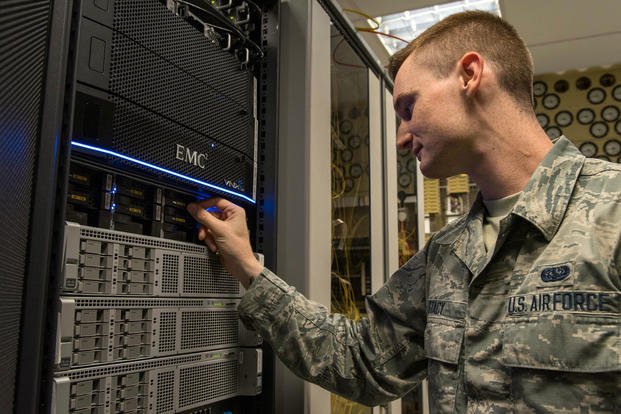If you are a transitioning veteran who likes technology, wants to utilize your military skills and desires a career with great growth opportunities and strong six-figure earning potential, you should consider cybersecurity.
Information security is a $122 billion industry today and is expected to grow to $202 billion by 2021. There were an estimated 313,000 job openings posted for the 12 months spanning September 2017 to August 2018.
And job prospects will remain strong for the foreseeable future. Employers are eager to find talented professionals who have hands-on skills. They favor former military veterans for cybersecurity positions because of their demonstrated discipline, teamwork and integrity.
Search for Computer and Tech jobs.
I speak from experience. I recently transitioned from the United States Air Force (USAF) with more than 23 years of service to our country. Today, at age 43, I am a cybersecurity analyst for RBR Technologies, working with the United States Department of Defense. In this position, I continue my commitment to my country by defending the Department of Defense information networks. I love the mission-based aspect of my job.
Related: To create a personalized transition plan for yourself, and for transition guides and checklists, visit the Military.com Transition Center.
What if you don't know the first thing about cybersecurity? I came to the job market with an interest in and an aptitude for technology, but without any deep technical skills or knowledge. I eased my transition from military service into a civilian cybersecurity career, because I made a solid plan of action. I began a SANS training program (see below) while on permissible leave and secured important industry-leading GIAC certifications. I was hired two months in advance of my military retirement.
If you are intrigued by the prospect of a career in cybersecurity, here are some firsthand tips for getting started:
- Find your niche. Familiarize yourself with the many positions within the cybersecurity field. You can visit the National Initiative for Cybersecurity Careers and Studies to learn more about the different career paths. There are also some great books and blogs you can read, such as "The Network Security Test Lab" by Michael Gregg, and Security Weekly.
- Make a plan and set realistic goals. You may have to take an entry-level position and a pay cut. Don't let this dissuade you. Create a plan for training, gaining certifications and advancing in the field. Keep your eye on the prize and look to the future.
- Expand your skill set now. Don't wait until after you've retired from active duty. Leverage open-source tools to expand your skill set now, including learning how to script. Here are some suggested open-source tools for consideration: Wireshark, Kali Linux and Python. Additionally, sectools.org has a comprehensive list of tools and helpful information.
- Find a mentor. A mentor can help guide your job-search quest. Don't be afraid to use your network of friends and associates to help you meet people working in cybersecurity. Seek out someone who is in a position that you hope to hold one day.
- Get certified. Industry-recognized certifications are absolutely essential to getting your foot in the cybersecurity door. There are many programs to help transitioning veterans enter the workforce. I chose the SANS VetSuccess Immersion Academy, a three-month, full scholarship-based, hands-on, technical training, and GIAC certification program. Graduates are introduced to world-class employers and, in some cases, guaranteed a job upon graduation with a program sponsor. Other programs worth exploring include the Cisco Global Cybersecurity Scholarship and CyberCorps: Scholarship for Service (SFS).
Related: Unleash your career potential and get customized job recommendations based on your military experience and personality traits.
The cybersecurity industry is undergoing a severe talent shortage, putting our communities, economies and nation at risk. If you have an interest in technology, I encourage you to explore your options. Cybersecurity is a great way to continue serving our country, just on a different battlefield.
Donald Greene is a 23-year veteran with the United States Air Force. Currently, he is a cybersecurity analyst for Maryland-based RBR Technologies, an IT consulting and engineering company. In this position, he works with the United States Department of Defense.
For the latest veteran jobs postings around the country, visit the Military.com Job Search section.
Looking for More Job Tips?
Sign up for a free Military.com membership to have military news, updates and job resources delivered directly to your inbox.











